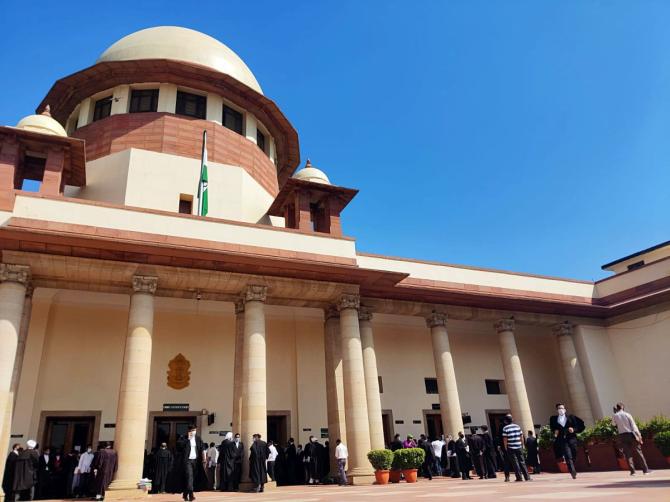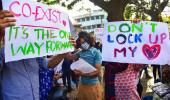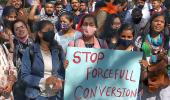Terming forced religious conversion a "very serious" issue, the Supreme Court on Monday took a serious note of such proselytisation through deception, allurement and intimidation, and asked the Centre to step in and make sincere efforts to check the practice.

It warned a "very difficult situation" will emerge if such religious conversions are not stopped as they may pose a danger to national security and the fundamental right of citizens to freedom of religion and conscience.
A bench of Justices M R Shah and Hima Kohli asked Solicitor General Tushar Mehta to enumerate measures to curb the practice through allurement.
"This is a very serious matter. Sincere efforts are to be made by the Centre to stop forced conversions. Otherwise very difficult situation will come. Tell us what action do you propose.... You have to step in," the bench observed.
Mehta submitted before the top court that the issue was debated even in the Constituent Assembly.
"There were two Acts. One was by the Odisha government and other one by Madhya Pradesh dealing with regulation of any forcible conversion by deceit, falsehood or fraud, money. These issues came before this court for consideration and the top court upheld the validity," Mehta said.
The solicitor general said forced religious conversions are rampant in tribal areas.
Many a time the victims are not aware they are the subject matter of criminal offence and would say they are being helped, Mehta said.
The top court observed there may be freedom of religion but there cannot be freedom of religion by forced conversion.
"The issue with respect to the alleged conversion of religion, if it is found to be correct and true, is a very serious issue which may ultimately affect the security of the nation as well as the freedom of religion and conscience of the citizens.
"Therefore, it is better that the Union government may make their stand clear and file counter on what steps can be taken by Union and/or others to curb such forced conversion maybe by force, allurement or fraudulent means," the bench said in its order.
It granted time till November 22, 2022, to the Centre to file its response on the issue and posted the matter for hearing on November 28.
The apex court was hearing a plea filed by advocate Ashwini Kumar Upadhyay seeking direction to the Centre and states to take stringent steps to control fraudulent religious conversion by "intimidation, threatening, deceivingly luring through gifts and monetary benefits".
The top court had on September 23 sought responses from the Centre and others to the plea.
Upadhyay submitted in his plea that forced religious conversion is a nationwide problem which needs to be tackled immediately.
"The injury caused to the citizens is extremely large because there is not even one district which is free of religious conversion by 'hook and crook'," the plea submitted.
"Incidents are reported every week throughout the country where conversion is done by intimidating, threatening, deceivingly luring through gifts and monetary benefits and also by using black magic, superstition, miracles but Centre and States have not taken stringent steps to stop this menace," said the plea filed through advocate Ashwani Kumar Dubey.
The plea has also sought directions to the Law Commission of India to prepare a report as well as a Bill to control religious conversion by intimidation and through monetary benefits.











 © 2025
© 2025